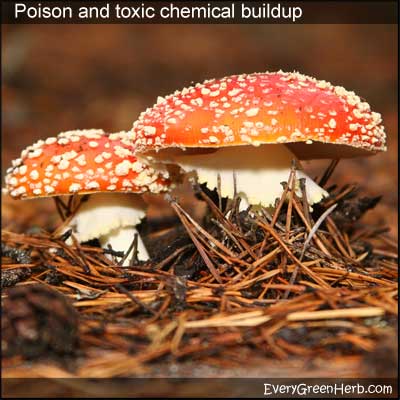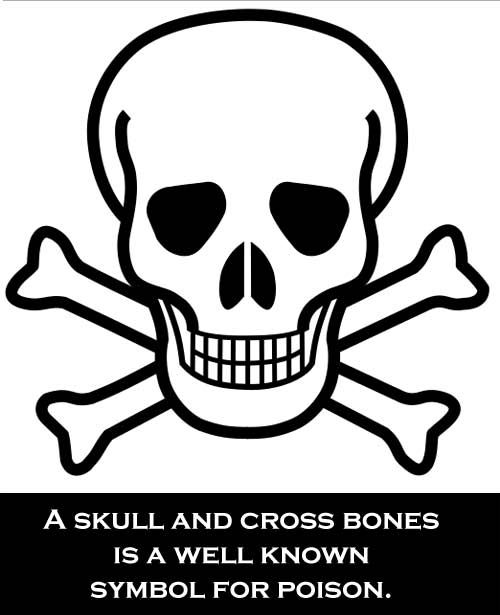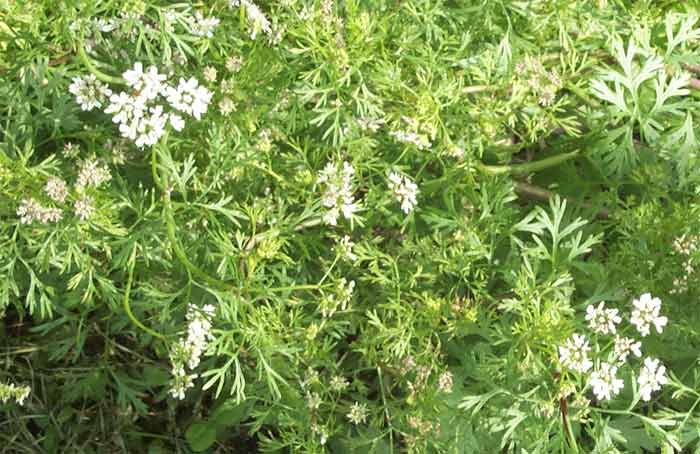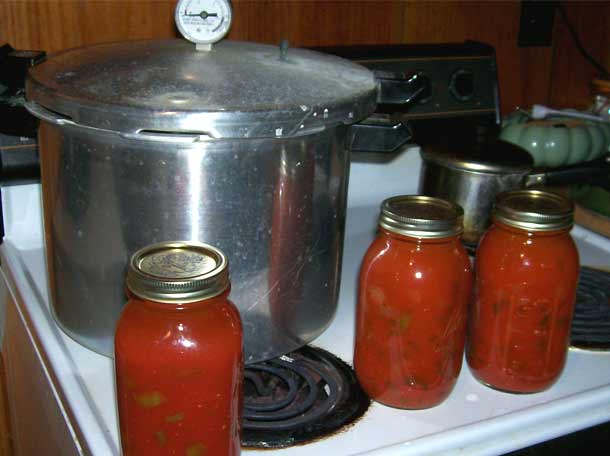Herbs to get rid of poisons, toxins, and heavy metals

Before beginning any treatment for suspected or confirmed poisoning, call the American Association of Poison Control Centers (800) 222-1222 hotline. They can tell you exactly what to do.
Air pollution, herbicides, pesticides, and environmental hazards like heavy metals, radiation, and toxic chemicals keep our bodies under constant attack. When you add in food contaminants like salmonella, e-coli, and botulism, it's a wonder mankind can survive.
Thank God, there are herbs and natural remedies that help to protect and heal our bodies from poisons and toxic substances!
In this post I will concentrate on bacterial food poisoning and heavy metal build up.
If you are looking for a remedy that gets rid of intestinal worms, read about herbs for parasites.
Treating mild food poisoning with natural remedies
Light cases of food poisoning may be treated at home. Here are some tips to remember:
- Do not drink milk, juice, alcohol, or vinegar until poison is removed from the stomach.
- Eat some high fiber foods and yellow vegetables (like squash and sweet potato) as soon as possible.
- Fresh lettuce is known to neutralize many poisons.
- Other things that may bring relief include strong black tea, activated charcoal tablets, burnt toast (absorbs poison just like charcoal), milk of magnesia, or aloe vera juice.
- Plantain tea, skullcap tea, yellow dock tea, horseradish, or elecampane tea may also help.
- Other herbs to try include ginger, cinnamon, cloves, licorice, cumin, barberry, thyme, rosemary, horseradish, yellowroot, peppermint, and peony root.

Poisons are a huge health concern.
Food poisoning alone affects between 60 and 80 million people worldwide each year, resulting in approximately 6 to 8 million deaths and countless visits to hospitals.
Plus. there is no telling how many people are harmed each day by air pollution and environmental poisons. These poisons build up over a period of years and are not included in statistics.
Symptoms of poisoning include diarrhea, nausea, and vomiting. Symptoms usually come on suddenly and may include body aches, cold sweats, severe abdominal pains, severe headaches, chills, fever, red rash on skin, weakness, limp muscles, paralysis that spreads downward, double vision, dry mouth, speech difficulty, cramps, and respiratory failure.
For milder and less serious cases of poisoning, home remedies can help.
Also, find home remedies for diarrhea.

Heavy metal poisoning causes increased sense of smell.
Symptoms of heavy metal poisoning include an increased sense of smell, aversion to perfumes and strong cleansers, low tolerance to alcohol, poor reaction times, seizures, psychotic behaviors, memory loss, senility, infertility, impotency, small back spots on the gums, weakness, dizziness, insomnia, nerve problems, hyperactivity, learning disabilities, bronchitis, miscarriages, bad breath and body odor.
A heavy build-up of heavy metals and environmental poisons is common in today's society. Nicotine, insecticide, herbicide, over-treated water, hair dye, aluminum cookware, household cleansers, deodorants, smoke, smog, paint fumes, plastic particles, and habitual use of antacids contribute to the problem. (Antacids interfere with the body's enzyme production and reduce its ability to carry off heavy metals.) Read more about protecting yourself from smoke.
If you have more than three of these conditions, you may want to do a detox.
Try detoxing to rid the body of heavy metals.
Heavy metal poisoning requires detoxification. A seven day diet of vegetables, brown rice, fruits, cilantro, and lots of water can help cleanse the kidneys and liver of heavy metal poisons.
Cilantro for heavy metal detox
This video teaches us about the top three health benefits of cilantro and its unique ability to get heavy metals out of the body.
Make use of vitamins and herbs
Antioxidants, vitamins, and minerals are very important in the treatment of heavy metal poisoning. Vitamin E, vitamin C, and zinc should be taken in supplement form. Do some research and find out how much you need depending on body weight, age, etc.
Eat all the berries and colorful fruits you can get. They are full of healthy antioxidants. Try to eat something colorful at every meal so that your body can recover from heavy metal damage. Green drinks with live enzymes are also useful.
Some herbs are especially useful for clearing the body of heavy metals. Evening primrose oil, milk thistle seed, green tea, and dandelion are recommended especially for patients with iron overload disease (hemochromatosis).
A hot seaweed bath is known to remove many heavy metals from the body. Using a dry brush on skin before and after an herbal bath is said to bring amazing results. I need to try that really soon. Have you ever used dry brushing to improve health? If so, I would love to hear from you.
Healthy immune systems can fight off poisons.
The best defense against all parasites and poisons is a strong immune system. Regular use of immunity enhancing herbs like astragalus, garlic, ginseng, and green drinks can help strengthen, protect, and speed up the healing process.

Food poisoning, herbs, and science
In developing countries, food poisoning is a common cause of illness and death. Both Gram negative bacteria like Salmonella and Gram positive bacteria like Staphylococcus cause untold suffering every day.
In studies, cumin, pomegranate, clove, ginger, and thyme extracts are shown to be effective herbal preservatives that act to prevent food spoilage.
More scientific findings
Symptoms of food poisoning usually start within 4 to 36 hours after eating contaminated food or poisonous plants.
- Botulism causes weakness, blurred vision, double vision, sensitivity to light, difficulty speaking, and paralysis.
- Salmonella causes fever, chills, and bloody diarrhea.
- E. Coli causes bloody diarrhea.
- Mushroom poisoning causes upset stomach, delirium, vision difficulties, heart problems, kidney failure, and liver damage.
- Some food poisoning can cause death if left untreated.
E. Coli if found in undercooked hamburger, unpasteurized apple juice, and raw milk. It is spread by cow manure and from person to person.
Listeria is often found in dairy products, cold, processed meats, and mayonnaise.
Shigella can be found on raw vegetables.
Staph is found in salad dressings, ham, eggs, custards, mayonnaise, and potato salad.
Botulism is found in improperly home canned foods, honey, and corn syrup.
Clostridium perfringens is found in meat, poultry, gravy, and other foods that are not reheated properly after cooling.
V. cholerae is found in mussels, clams, oysters, and scallops, raw shellfish, and crustaceans such as lobsters, shrimp, and crabs.
Poisons are also found in puffer fish and some mushrooms, especially Amanita phalloides.
Infants and the elderly are at risk.
Infants and the elderly are at greater risk for food poisoning. Other risk factors include:
- Pre-existing medical conditions like liver disease
- Taking antibiotics, antihistamines and steroids
- A weak immune system
- Pregnancy
- Traveling
in foreign countries where water is often contaminated
To prevent food poisoning:
- Wash your hands often.
- Use clean dishes and utensils.
- Cook foods to proper temperatures.
- Refrigerate any food that is left over.
- Follow proper canning techniques.
- Do not give honey to children under one year of age.
- Do not eat wild mushrooms unless you know what you are doing.
- Don't eat tropical fish caught during poison plankton blooms.
- Eat pufferfish only when it is cooked by a trained and trusted chef.
- Don't eat seafood that is exposed to red tides.

If you get food poisoning, replace lost fluids so you don't become dehydrated. Take activated charcoal tablets if you have them on hand.
Seek professional help if you have prolonged diarrhea or vomiting. If you have eaten certain toxins, you may need to have your stomach pumped.
Milk thistle is shown to help mushroom poisoning, but see your healthcare professional if symptoms are severe such as shortness of breath, stomach pain, or rapid pulse.
Other tips for recovering from food poisoning include drinking barley or rice water, taking probiotics, and drinking medicinal teas.
The best herbal teas for recovering from food poisoning are thyme, rosemary, basil, coriander, sage, spearmint, panax ginseng, astragalus, cinnamon, licorice, peony root, skullcap, goldenseal, oregon grape, yellowroot, chamomile, barberry, and fennel.
These herbs have antimicrobial properties that protect and heal the digestive tract.
Vitamin A has been shown to help treat salmonella.
Effects of food poisoning can be long lasting. Problems include kidney problems, fatigue, breathing problems, muscle weakness, arthritis like pain, inflammation of the heart lining, and nerve problems.
*Always consult with your healthcare professional before using any herbal remedy.
Sources:
https://www.ncbi.nlm.nih.gov/pmc/articles/PMC5815983/
https://www.stlukes-stl.com/health-content/medicine/33/000064.htm
Blessings to you and yours!
Thanks so much for reading my blog. Jan.

*Note - the information on this website has not been evaluated by the Food and Drug Administration.
© 2005-2024 website design and content by Janice Boling